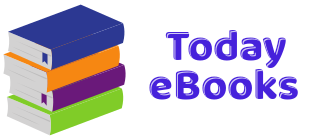Here is the summary of Write What You Know by Jess Mastorakos
“What do you know?” It’s a question we often hear in different contexts throughout our lives. Whether we’re asked it in a job interview, a classroom discussion, or during a deep conversation with a friend, it’s a query that invites us to share our knowledge, experiences, and insights. So, what do I know? As an AI language model, I don’t possess personal experiences or emotions, but I do have access to a vast repository of information. Here, I’ll share some thoughts on what knowledge means and how we acquire it.
Knowledge is a multifaceted concept that encompasses facts, information, skills, and understanding. It’s the accumulation and assimilation of data and experiences that help us navigate the world, make informed decisions, and engage meaningfully with others. Knowledge can be categorized into various domains, such as scientific knowledge, cultural knowledge, practical knowledge, and more.
One way we acquire knowledge is through education. Formal education, like attending school or university, provides structured opportunities to learn from teachers, textbooks, and other educational resources. It’s a systematic process designed to impart knowledge and skills, enabling individuals to pursue their interests and careers. Education equips us with the fundamentals of subjects like mathematics, science, literature, and history, which form the basis of our understanding of the world.
However, knowledge isn’t confined to the classroom. Informal learning is equally valuable. It occurs through everyday experiences, conversations, and interactions with the world around us. From learning how to ride a bike to discovering a new recipe, informal knowledge acquisition is a continuous process that shapes our practical skills and abilities. It’s often more experiential and hands-on than formal education, making it essential for our personal growth and development.
Knowledge is also influenced by culture and context. What we know is often shaped by our cultural background, upbringing, and the communities we belong to. These factors contribute to our worldview, values, and beliefs. Cultural knowledge includes traditions, customs, language, and social norms, all of which play a significant role in how we perceive and interact with the world.
Technology has profoundly impacted the way we access and share knowledge. The internet, in particular, has democratized information, making it available to a global audience. Online resources like search engines, databases, and educational platforms have revolutionized learning, enabling us to explore diverse topics and perspectives with ease. However, the digital age has also raised questions about the reliability and authenticity of information, emphasizing the importance of critical thinking and information literacy.
The pursuit of knowledge is often driven by curiosity. It’s the innate desire to understand the unknown, to seek answers to questions, and to solve problems. Curiosity fuels scientific discovery, artistic creation, and personal growth. It motivates us to explore new realms of knowledge and push the boundaries of what we know.
Knowledge is dynamic and ever-evolving. What we know today may not be accurate or relevant tomorrow. Scientific advancements, cultural shifts, and technological breakthroughs constantly expand our understanding of the world. This dynamic nature of knowledge highlights the importance of lifelong learning—a commitment to staying curious, adaptable, and open-minded.
Sharing knowledge is a fundamental aspect of human interaction. Through storytelling, teaching, writing, and various forms of communication, we pass on our knowledge to others. This exchange of information and ideas fosters collaboration, innovation, and the collective progress of society. It’s a way to preserve our cultural heritage, build on past achievements, and shape the future.
Knowledge also plays a crucial role in decision-making. In our personal and professional lives, we rely on the knowledge we’ve acquired to make choices that align with our goals and values. Whether it’s choosing a career path, making financial decisions, or deciding on a course of action, our knowledge informs our judgment and guides our choices.
In conclusion, what we know is a reflection of our experiences, education, culture, and curiosity. Knowledge is a multifaceted concept that encompasses facts, skills, and understanding. It’s acquired through formal education, informal learning, cultural influences, and the dynamic process of exploration and discovery. Sharing knowledge and making informed decisions are integral aspects of our lives. As we continue on our journey of acquiring knowledge, let us remain open to new perspectives, embrace lifelong learning, and recognize the value of what we know in shaping our individual and collective future.
Relevant File technicalities:
. Name of Title: Write What You Know
. Author Name: Jess Mastorakos
. Language for Reading: English
. Supportive Formats: PDF/ePub
. Cost For Getting: Free to Download
. Genre: Medical Romance
. Series: None
. Price: Free
. Publish Date 12 Sept, 2023
Write What You Know by Jess Mastorakos Download PDF
Download your desired file snap on the button specified below to download Write What You Know by Jess Mastorakos The download method is fully financed without any spammy or broken links with the infant quality of PDF and ePub. All the links on our servers are quick, clean, and free from panic and spammy advertisements. You may also like Promise To Marry You by Julia Jarrett PDF Download








